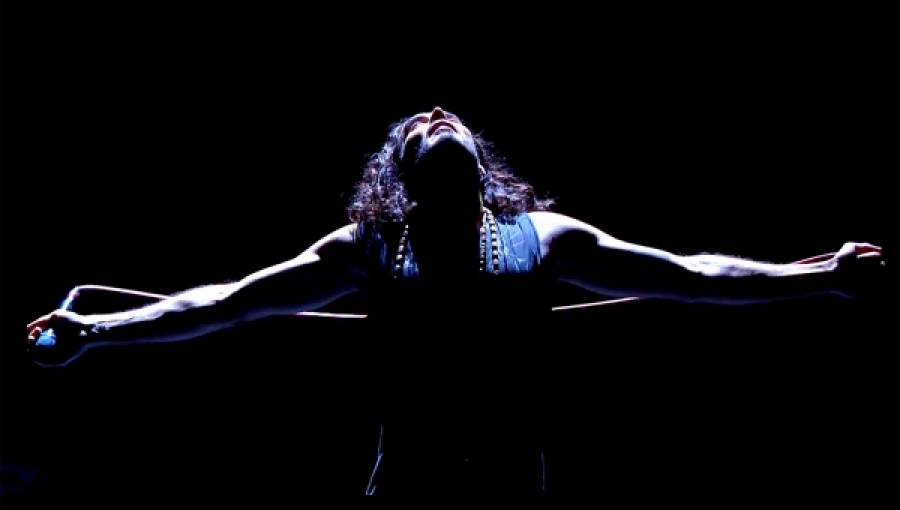Reporting from the Los Angeles Film Festival Produced by Film Independent
I’m a Beatles fan. Most people are, at least to some degree. I mean, who doesn’t have a few Beatles songs that they love? Their body of work was so good and so diverse, ranging from Buck Owens covers to George Harrison’s sitar infatuations, that it would really difficult for the average person to not find at least a few of their songs really vital.
The artistic growth the Beatles went through in such a short amount of time is also pretty amazing. They went from songs like “Please Please Me” in 1964 to “The Long and Winding Road” by their breakup in 1970. I was born after their heyday, so like most fans today, I got their body of work in one big lump sum, Netflix style. I didn’t have to wait from one album to the next. I didn’t live their artistic progression. So, that left a question I’ve always asked myself: would I have been a fan had I been alive at their zenith in popularity? I tend to resist the “hottest thing at the moment” and their early, bubblegum pop songs, while certainly the best possible versions of these type of songs, are not usually my favorite of theirs. (Though, oddly, my favorite song of theirs is “Drive My Car,” as perfect a pop song as has ever been conceived.) Today’s fan can log onto iTunes and hear their entire artistic progression in an afternoon, but what if you were living it? What would that have looked like?
There are always artists trying to reinvent themselves. Woody Allen went from making smart, but broad, comedies to a serious filmmaker crafting Gordon Willis-shot black-and-white gems like Manhattan and Stardust Memories. (Personally, my favorite Woody Allen films are the ones like Hannah and Her Sisters that combine both of those elements.) Some artist reinvent themselves backwards, like U2 in the ’90s, morphing from their super-earnest, 1980s socially conscious Amnesty International selves to a more meta commentary on rock star celebrity. Sometimes, the reinvention works, sometimes, it’s a career killer.
I say all this to preface the fascinating documentary, Brand: A Second Coming, Ondi Timoner’s film about British comedian (and Katie Perry’s ex-husband) Russell Brand. A recovering addict, Brand has been a huge star in the UK, selling out arenas for his stand-up comedy shows. Apart from his celebrity ex, Brand is probably most well known in the US for playing a skewed version of himself in both Forgetting Sarah Marshall and Get Him to the Greek. Undaunted by fame, Brand, like the Beatles, is trying to progress.
Originally screened at SXSW, Brand tried to have public screenings of the film cancelled, and he withdrew as the keynote speaker for that festival. It’s odd, because the finished film is anything but a hatchet job, and it mostly casts Brand in a positive light. The film largely depicts Brand moving away from celebrity hedonism and embracing a worldview quite similar to his rock star counterpart, Bono. Say what you will about Bono, not many famous people use their status to do the amount of good he does in the world. Like him, Brand donates a lot of his personal wealth and has worked to provide rehab services to addicts in London. Brand is also a fervent supporter of the Occupy Movement and preaches an end to capitalism, an economic form that has made him very rich.
Like the best documentaries trained on a single personality, Brand: A Second Coming does a great job of showing the comic as a flawed human being with the contradictions we all have inside us. It always fascinates me when rich people get attacked for advocating policy changes that would help the poor, as if being rich disqualifies you from having an opinion about social justice. Did successful people who came from nothing magically forget where it was they came from once they get money? (Well, to be fair, some of the certainly seem to.) Does a successful guy like Bruce Springsteen lose the right to advocate for the poor when he makes money? Did Bruce forget about his hardscrabble upbringing in New Jersey once the cash started to roll in? Brand came from a broken family and was pursing fame in his teens. Like Bono after Live Aid, a trip to Africa seems to have really impacted Brand’s world view. Visiting a huge landfill, Brand was particularly moved by people who live in the huge dump, trying to find enough food to subsist on.
I think fans will find a lot to like here, as it does a lot to humanize Brand. Footage from days at the height of his addiction is pretty disturbing to look at. I wasn’t much of a fan going in. I was sort of indifferent to Russell Brand, more irritated by that terrible remake of Arthur than anything else. (The Arthur remake really flies under the radar of all the recent remake hate. It’s by far the worst one, because the original film was pretty flawless. You’re upset they’re remaking Kindergarten Cop? Have some perspective!)
I emerged from the film quite impressed by the guy, you could say I’m a convert. I liked that the film doesn’t shy away from looking closely at his flaws and contradictions. In other words, Russell Brand comes off like a human being. He’s clearly very intelligent and is quite committed to his work. As the United States seems to be going backwards in time, it’s important for a person of Brand’s stature to be advocating the things he’s calling for.

